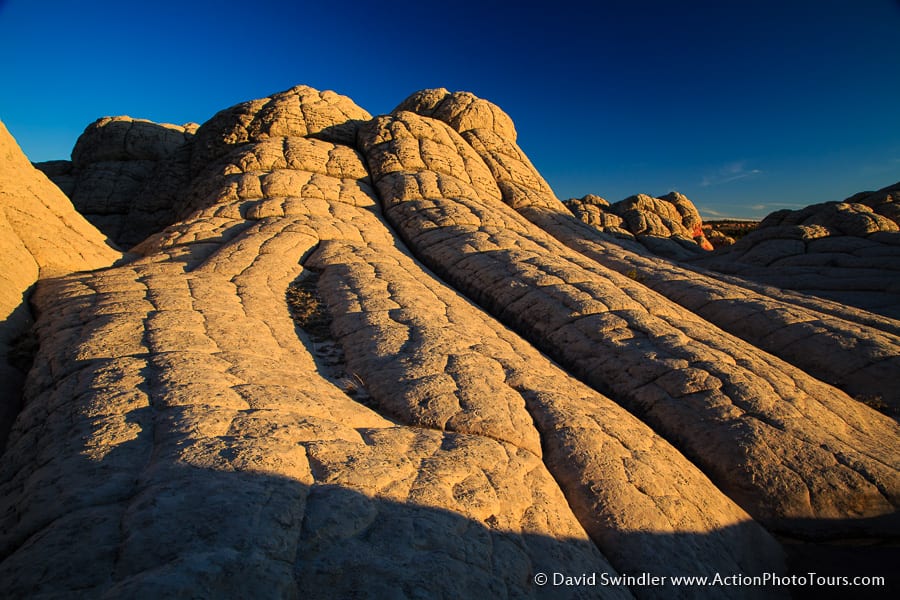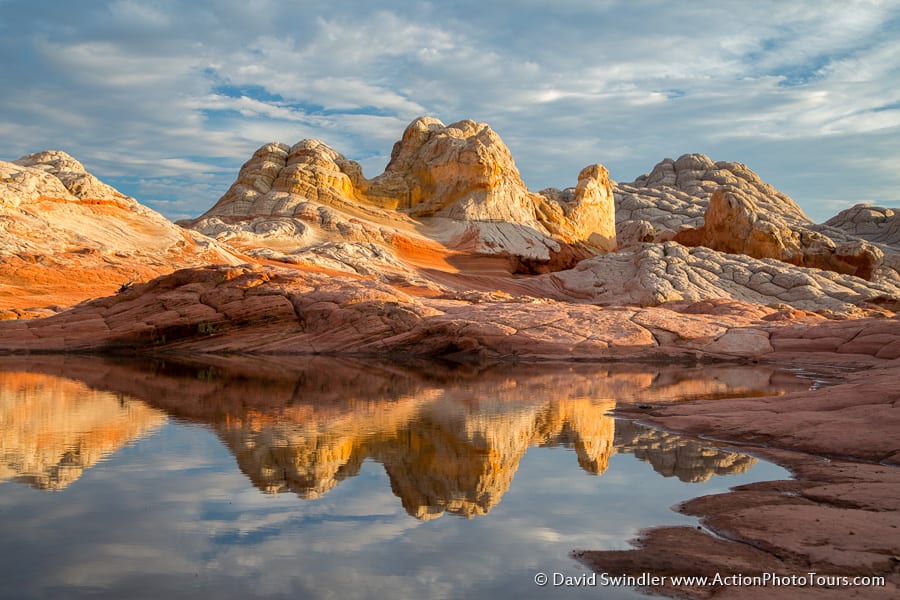White Pocket
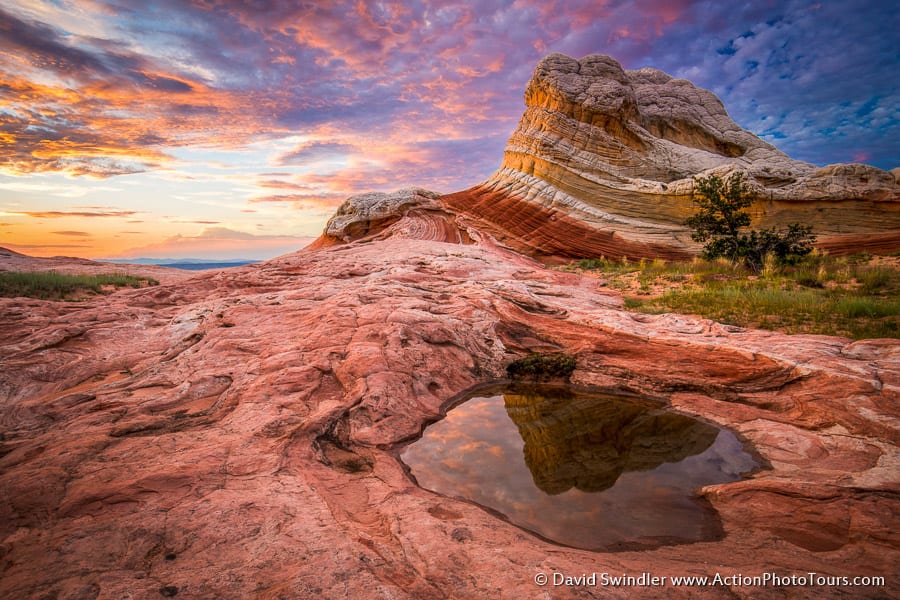
White Pocket is one of my favorite places in the desert southwest. Photographic possibilities are endless and great shots can be obtained in virtually all weather conditions. It’s famous for its large expanses of white brainrock, colorful swirls, and intricate cross-bedding. Many theories abound on how White Pocket was formed, but nobody really knows for sure. It’s most likely due to a form of soft-sediment deformation. Click here is you want more of the scientific details.
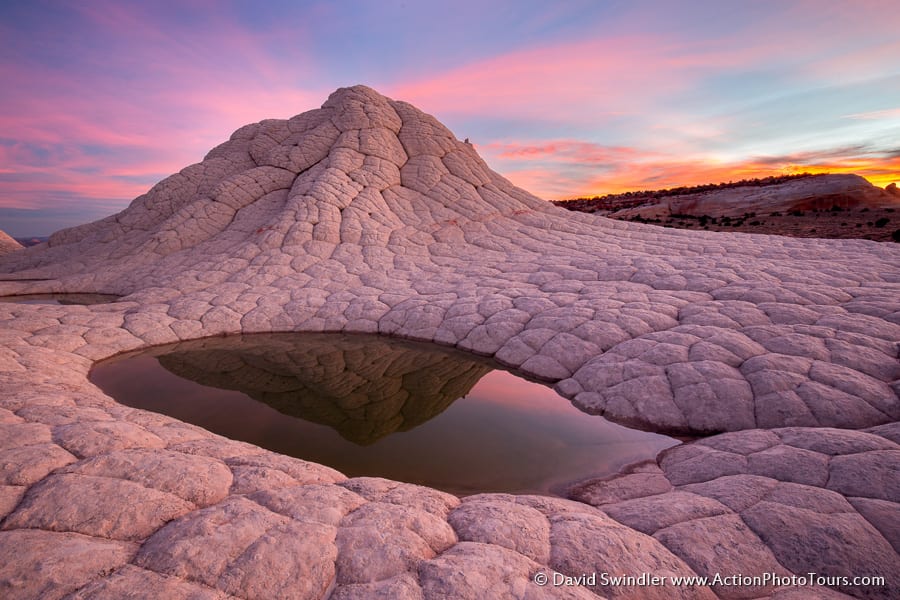
White Pocket used to be an ancient seabed; fossils and imprints of ancient sea creatures line the white brainrock and add interesting textures. The shot below was taken at night under a starry sky. You can see the fossil imprints if you look closely. It’s fun to find lines in the rock that lead the viewer’s eye right into the focal point of the image.
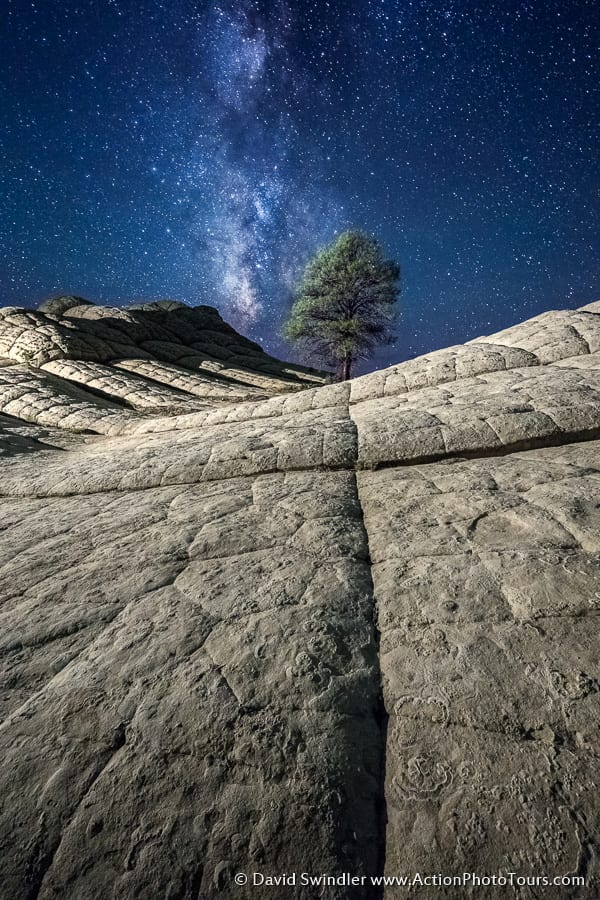
Located deep in the Sand Hills in the Vermillion Cliffs National Monument, White Pocket is remote and requires a good 4WD vehicle to reach. There are many sections with deep sand so make sure you bring some extraction equipment in case you get stuck. Access is much easier in winter or after a rainstorm. With all the photographic interest in the area, you will most likely see other people out there, although I’ve had it all to myself on occasion. Early mornings are magical out here. Head out well before dawn to capture images like the one below with faint morning glow.
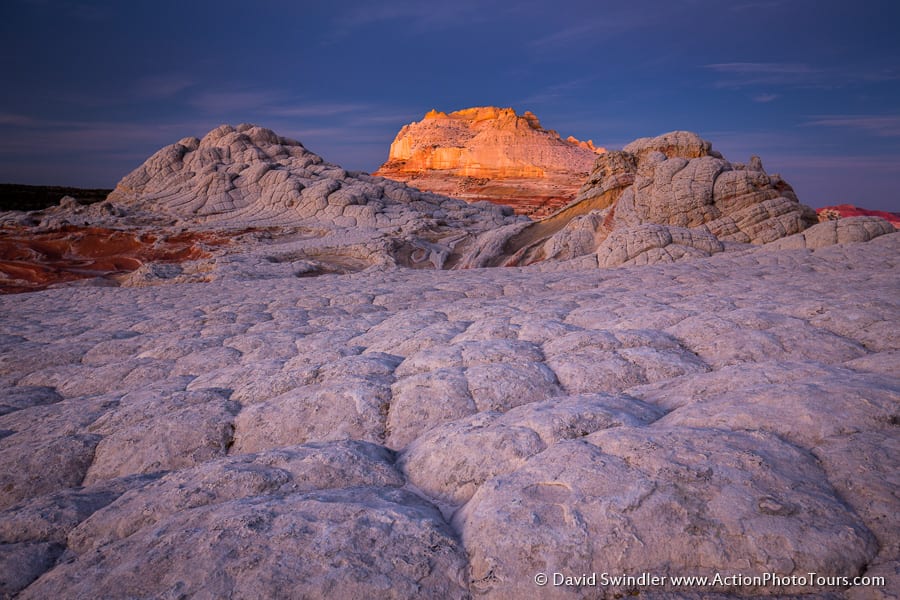
The best way to photograph White Pocket is to camp overnight; that way you can get both sunset and sunrise and maybe some night shooting. Most outfitters that bring people out here just come in the middle of the day, give their clients 3 hours to walk around, and then head back in mid-afternoon. You can’t get good shots that way. When I bring clients to White Pocket, I make sure we either spend the night or at least stay out until after sunset. It’s a long drive out here, so an overnight trip works best. There are no facilities – make sure you bring plenty of water, food, and a way to bury human waste.
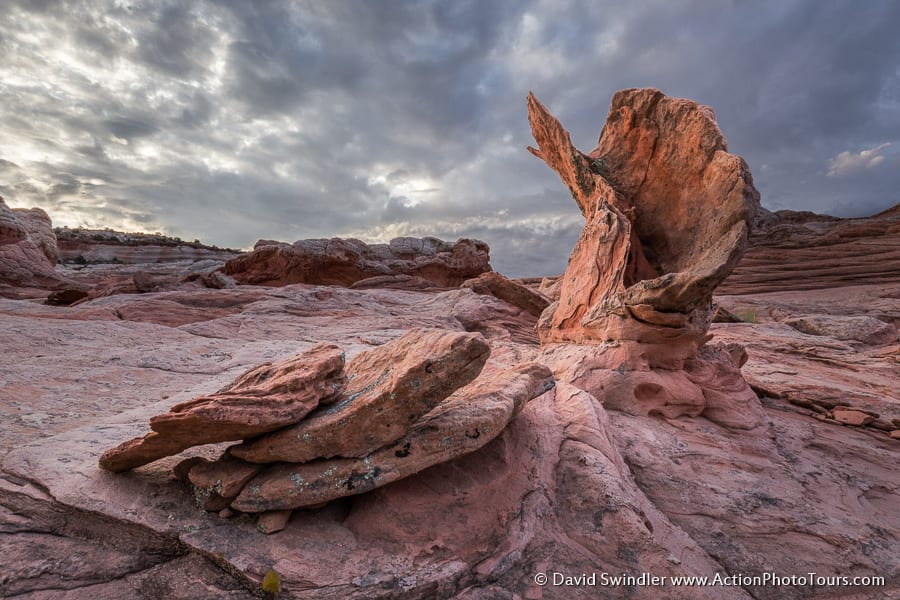
One thing I love about this area is that I always find something new to shoot. This interesting hoodoo above is just one of those little “discoveries.” It’s not very big, but when shot from a very low vantage point with a wide-angle lens, it produces an eye-catching shot.
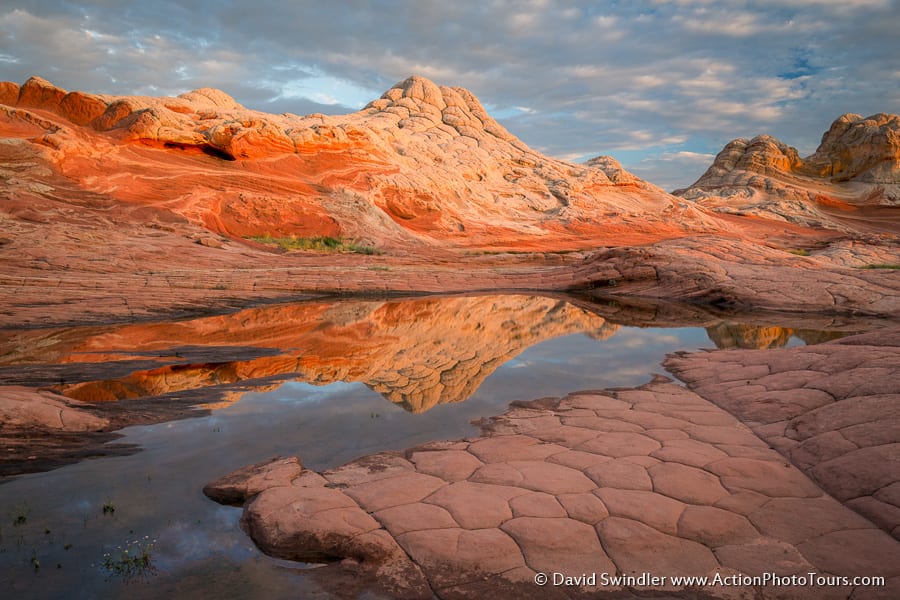
In my opinion, the best time to visit White Pocket is after recent rains. The month of August is your best bet, although it can rain or snow anytime of the year. After a rain, the pools are full of clear water that can produce glass-like reflections when the wind is calm. It doesn’t take long before these pools are full of small tadpoles. It’s amazing to me how the tadpole eggs can survive in this dry environment until the rains come.
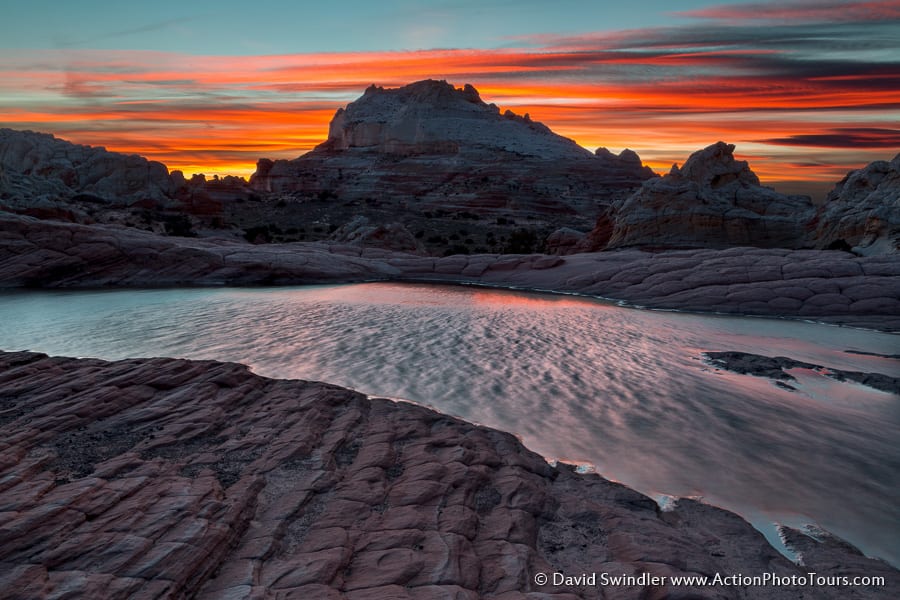
Even if it’s windy, don’t despair! It can get very windy and cold out here, so make sure you bring some warm clothes. In the shot above, I took a 2-sec exposure in the direction the wind was blowing which helped add some drama to the shot. In fact, I liked it more than just a static reflection.
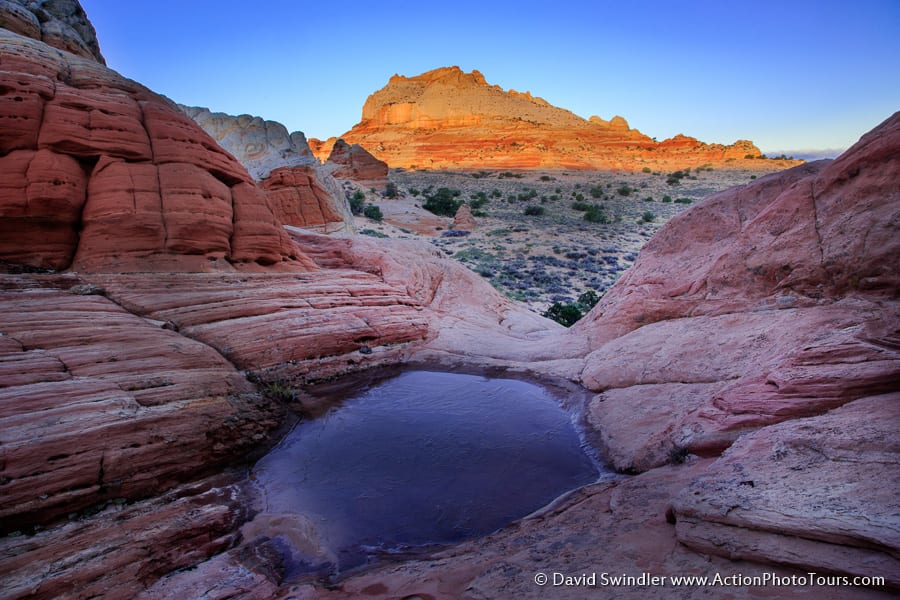
Except during the summer months, ice is common and you may not get any reflections. The little ice pools still make great foreground elements.
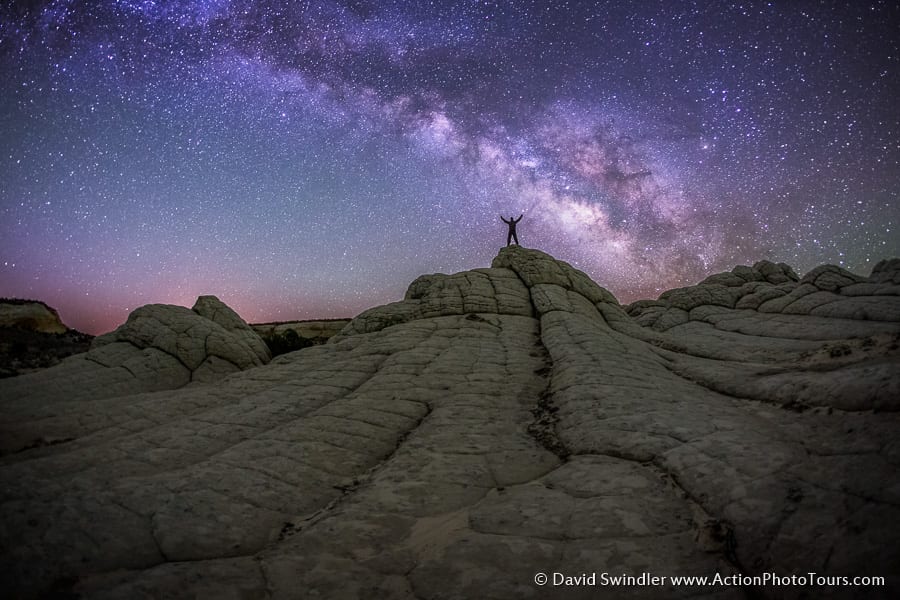
Shooting at night is a lot of fun here. This is a self-portrait I took where the foreground was lit entirely by natural light from the stars. The white brain rock is surprisingly bright at night! The red glow on the left is light pollution from Page Arizona. I used a 15mm f2.8 fisheye lens and triggered the camera with a radio trigger. The best Milky Way can be seen during the months of March through Oct.
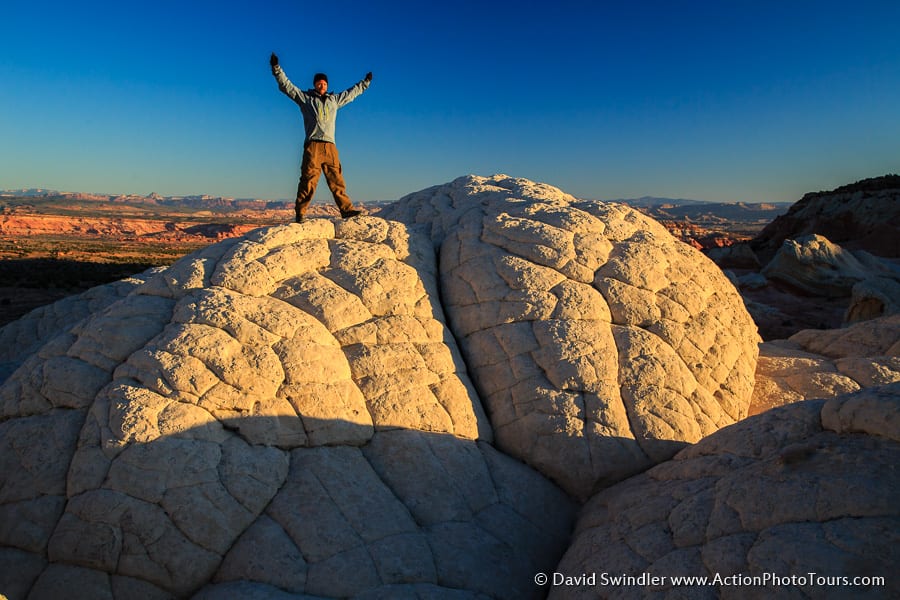
While we’re on the subject of self-portraits, make sure you take a few shots of yourself. Adding a human to the landscape can help the viewer understand the strange landscape better. I liked this shot since it looks like I’m standing on the brain!
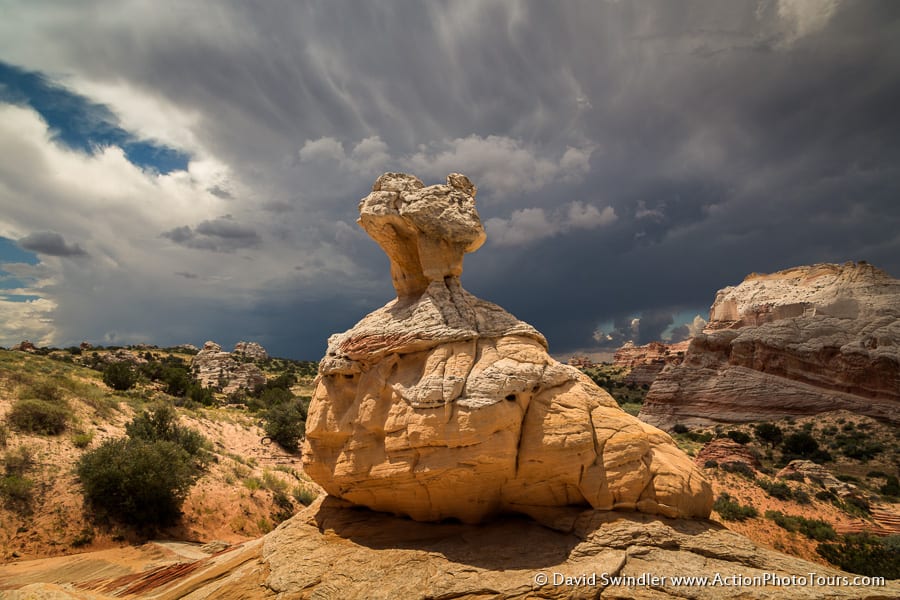
Summer monsoon storms can create impressive clouds. I took this shot in mid-afternoon as a large thunderhead was moving in. This little goblin is one of my favorite spots to shoot.
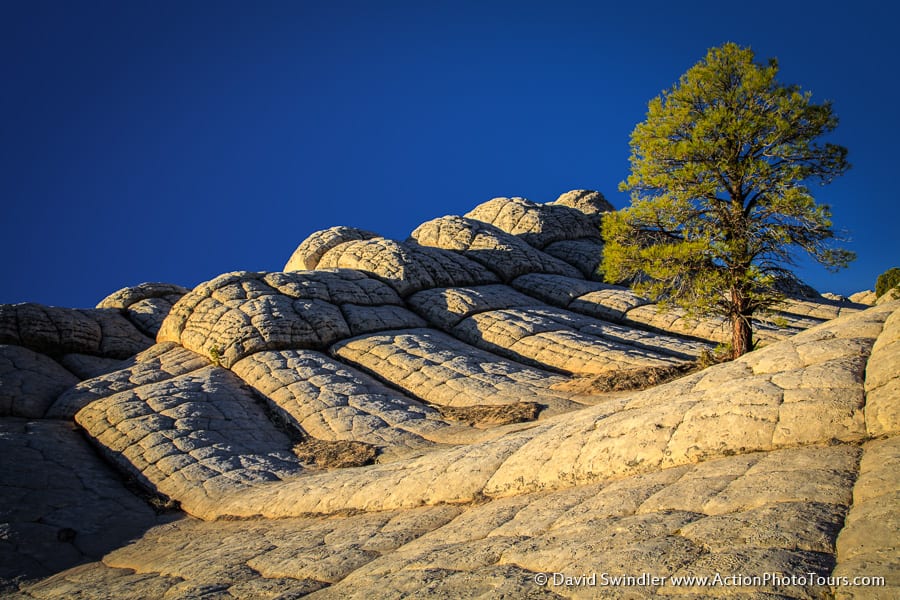
This lone tree is the classic shot on the south side of White Pocket. You can shoot it a myriad of different ways; there can be reflecting pools down below or you can use a mild telephoto from further back. When you visit, bring a variety of lenses. I shoot with extreme wide-angles all the way up to a long telephoto. It’s also interesting to shoot abstract compositions of the fins, swirls, and textures.
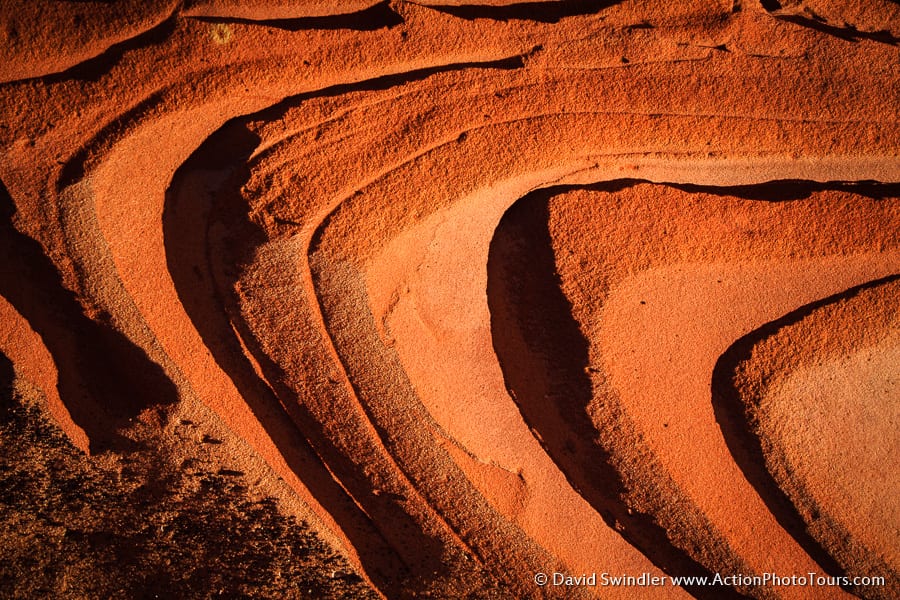
I hope I’ve inspired you to come visit White Pocket. You don’t need any permit to visit, although that could change in the future. I’ve taken many clients out here and they’ve always come away with impressive images. If you’re interested in a private tour, check out my webpage here. I can also outfit you for overnight camping if desired. Happy shooting!
